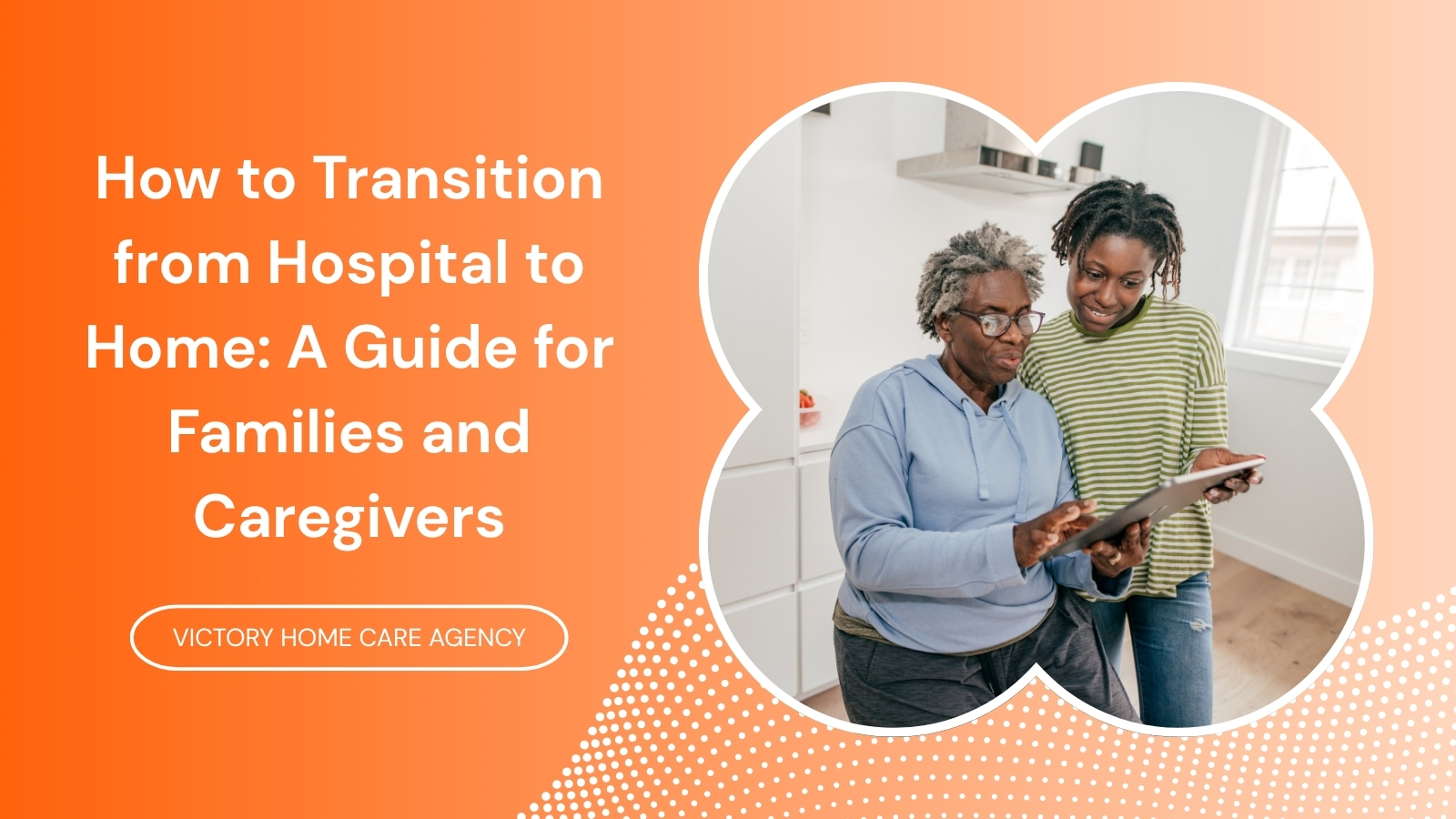Returning home after a hospital stay—whether from surgery, illness, or injury—can be a moment of relief and hope. But it also comes with challenges, especially for seniors or individuals who need ongoing support. Planning the transition carefully is essential to ensure safety, comfort, and a full recovery.
At Victory Home Care Agency, we help families navigate this critical time. Here’s a step-by-step guide to help you manage a smooth hospital-to-home transition.
Step 1: Understand the Discharge Plan
Before your loved one leaves the hospital or rehabilitation center, the care team will provide a discharge plan. This includes:
- Medical instructions (wound care, medications, follow-up appointments)
- Recommended equipment (wheelchairs, walkers, oxygen tanks)
- Dietary or activity restrictions
- Signs of complications to watch for
Tip: Ask questions. Don’t leave until you feel confident about the instructions and next steps.
Step 2: Prepare the Home Environment
Make sure the home is safe and accessible:
- Remove fall hazards like loose rugs or clutter.
- Install safety features such as grab bars in bathrooms, night lights, and stair railings.
- Arrange the living space so that the bedroom, bathroom, and essentials are on the same floor (if possible).
Step 3: Arrange for In-Home Support
Depending on the level of care needed, your loved one may require:
- Personal care assistance: Bathing, toileting, dressing
- Medication reminders
- Meal preparation and light housekeeping
- Companionship to reduce feelings of isolation
Hiring a non-medical home care agency can be a wise solution, especially for private pay families who want reliable, professional caregivers without the complexity of medical care.
Step 4: Manage Medications and Appointments
Hospital discharges often come with new prescriptions and a list of follow-up appointments. To stay on track:
- Use a pill organizer or medication management app
- Set reminders for doses and check-ins
- Keep a health journal to track symptoms, diet, and progress
Step 5: Communicate with Health Professionals
Maintain open lines of communication with:
- Primary care physicians
- Specialists (cardiologist, neurologist, etc.)
- Home care providers
- Physical or occupational therapists
Proactive communication ensures early detection of issues and avoids unnecessary readmissions.
Step 6: Focus on Recovery and Emotional Support
The transition home can be emotionally overwhelming. Your loved one may experience fear, fatigue, or frustration. Offering encouragement, being patient, and ensuring regular social interaction can make a huge difference in their emotional well-being.
Victory Home Care Can Help
At Victory Home Care Agency, we specialize in post-hospital transition care. Our caregivers are trained to support clients with compassion and professionalism, helping them regain independence while ensuring their safety at home.
If you or a loved one is preparing to return home from the hospital, call us today at 440-455-1331 or visit www.victoryhca.com to learn how we can help.
Your peace of mind is our priority. Let us be your partner in care during this critical transition.

